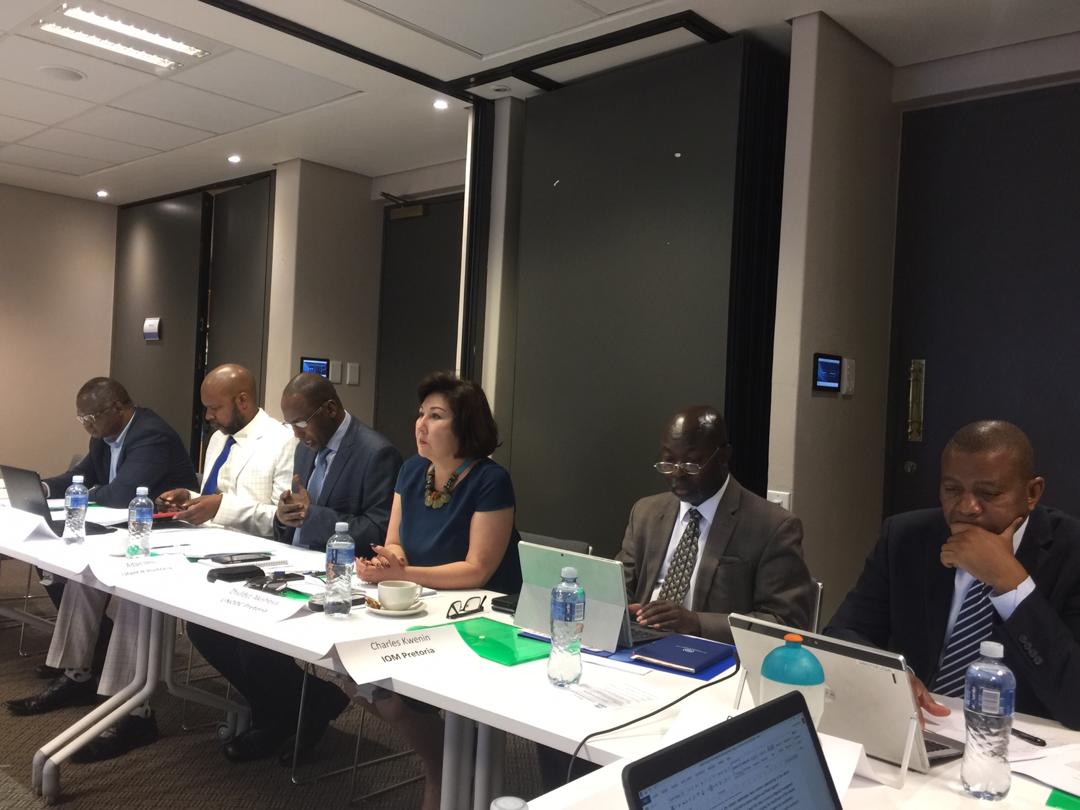By Byron Mutingwende
Southern African countries are meeting in Pretoria to share notes on the current migration management project in a bid to find solutions to the complexity of the issue affecting the regional economic community.
In his address during the stakeholders meeting, Dr. Joni Musabayana, the Director of the Decent Work Team for Eastern and Southern Africa of the International Labour Organisation (ILO) said it was high time to better know, understand and manage the migration issue.
The project is anchored in Continental Frameworks of the Sustainable Development Goals (SDGs) and the recent Global Compacts as well as the Continental and Regional Strategic plans and Framework.
“The complexity of the migration phenomenon derives from their irregular nature; the multiplicity of factors driving such movements, as well as the differentiated needs and profiles of people involved.
“These include political instability and conflicts, economic meltdowns, natural disasters and structurally high levels of unemployment, particularly among the youth and women and most vulnerable populations which have contributed towards the perpetuation of such movements,” Dr Musabayana said.
He said the challenge is made worst by the very limited available and reliable disaggregated data at country, regional and Global level, due to the nature itself of Migration which majority is informal, undocumented and irregular.
In that context, human rights violations and lack of protection are a stark reality in the SA-IO region. Vulnerable migrants such as women, children, people living with HIV and AIDS and people with disabilities, but also refugees and internally displaced persons, are systematically exposed to abuse and exploitation.
Significant numbers of women and children are being trafficked within the sub-region and beyond for sexual and/or labour exploitation.
The project is in line with the several international agreements and standards to which African countries are party. These include the ILO International Labour Standards, the United Nations Convention against Transnational Organised Crime (UNCTOC), the Protocols Against Human Trafficking and Migrant Smuggling, the Refugee Conventions as well as regional standards such as the African Union Declaration on Refugees, Returnees and Internally Displaced Persons in Africa (Kampala Convention, 2009).
Dr Musabayana pointed out that, faced with continuous inflow of irregular migrants and, in some cases, an increase in the absolute number of migrants, countries tighten restrictions on entry and take measures to force irregular migrants to leave.
While this results in some reduction in migratory flows, it also generates in-flows that are more difficult to regulate and poses serious concerns for the protection of the migrants’ rights, in particular regarding the many forms of gender-based violence affecting women and girl migrants.
Meanwhile numerous persons are submitting asylum applications hoping to be recognised as refugees and overloading and compromising refugee systems across these regions.
“It is therefore crucial to strengthen migration management through advocating for countries that have not ratified relevant international and regional refugee conventions and protocol, coupled with the development and ratification of protocols that facilitate movement, and the development and implementation of targeted policies and programmes against irregular migration, smuggling of migrants and trafficking in persons, especially women and children.
“It is also important to create awareness and sensitise stakeholders of all the available regional instruments of the RECs for effective implementation. All those, taking into account the specificity of the national and region context and in full and entire respect of national sovereignty.”
The African continent is generally characterised by diverse migration patterns. It has a long history of intra-regional and inter-regional migration flows. The African Union has adopted several policy frameworks supporting the ideal of free movement, and in 2015, it officially launched the Labour Migration Governance for Development and Integration as part of its Declaration on Employment, Poverty Eradication, and inclusive development in Africa.
In June 2015, the AU Declaration on Migration announced the adoption of a Continental free movement regime by 2018, including through the harmonisation of migration regimes of the Regional Economic Communities and superseding of national legislations.






